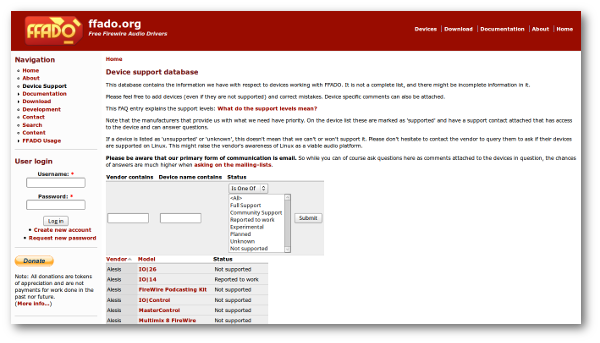Updated: Tue, 2014-08-19 10:13
You can install plugins from your distro's software center or package manager. Search for LADSPA, LV2, DSSI and VST, which are the plugin formats supported on Linux. If you are using a Ubuntu or Debian based distro, you can add the KXStudio repositories, which will pull in more plugins, and more up to date ones, into your software center and/or package manager.
Updated: Wed, 2015-05-13 08:01
If you are on a forum or on IRC trying to troubleshoot an issue with JACK, you may be asked which version you are using. A lot of people that are using Qjackctl to control JACK, look for the version number there. This however is the version number for Qjackctl and not for JACK. To find out which version of JACK you are using, open up a terminal, type in the command
jackd -V
Updated: Tue, 2015-04-21 10:20
Updated: Sat, 2015-02-21 11:49
Updated: Tue, 2014-08-19 09:43
If a device is class compliant, it means that it does not need any special drivers and will work out of the box.
Updated: Wed, 2014-03-26 17:03
The kernel is the bottom most layer of your operating system. Every operating system has a kernel. The common factor in every Linux distribution is the Linux kernel itself. This deals with basic input and output, on top of which everything else is built. The Linux kernel is where device drivers live.
Updated: Tue, 2014-08-19 07:12
FFADO stands for Free FireWire Audio Drivers. This is an open source device driver backend for JACK. If you want to use a firewire interface, check out the FFADO website to see which devices are supported.

Updated: Tue, 2014-08-19 07:20
Pulse audio is a sound server that uses ALSA as it's backend. It is more geared towards general desktop audio. While it is useful for these purposes, pulse audio isn't used for any audio production software.
Pages